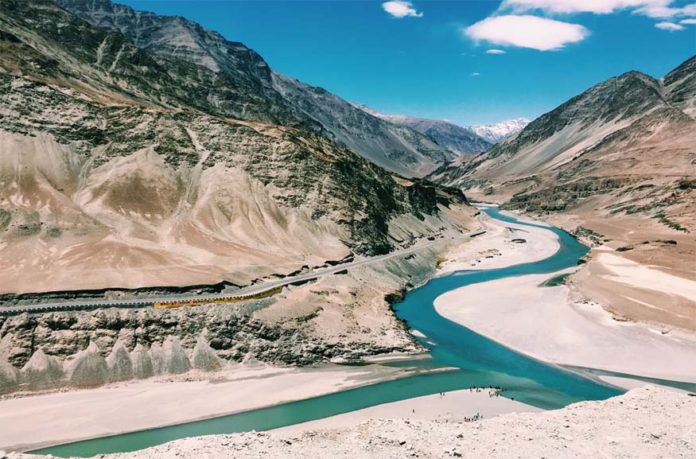Disclaimer: The Eqbal Ahmad Centre for Public Education (EACPE) encourages critical and independent thinking and believes in a free expression of one’s opinion. However, the views expressed in contributed articles are solely those of their respective authors and do not necessarily reflect the position or policy of the EACPE.
Just recently, the government of Pakistan has announced that all the preparatory work for the construction of Diamer-Bhasha Dam has been completed. While it is pronounced as a historic news, it shall not be forgotten that under the National Water Policy, developing consensus among all the stakeholders is mandatory to construct any new dam on the Indus River.
The construction of dams on Indus River without taking into consideration the consent of people of Sindh and addressing their concerns will be unwise.
The construction of dams on river Indus without taking into consideration the consent of people of Sindh is the violation of the article 155 of the constitution of the Pakistan that addresses complaints as to interference with water supplies. Also, according to Water Apportionment Accord 1991, the government must listen to its member province on river Indus.
Unfortunately, the accord failed to resolve the reservations of Sindh over water sharing. It is feared that extraction of water for dam building and irrigation in upstream provinces will further deprive the region of the water it needs. Not only this, the dam might be an ecological mega disaster for the Sindh, and would badly affect the environmental balance and wild life as well.
Indus River System Authority (IRSA) was established for regulating and monitoring the distribution of water sources of Indus Rivers amongst the provinces in accordance with the accord. However, IRSA failed to serve the purpose.
IRSA claims that 29MAF (million acer foot) water goes in Sindh for the Kotri downstream per annum, but the amount is practically far less than it – something that affects the delta. Less or no downstream water in the Indus River to go into the sea has caused sea erosion on a massive scale. This means Indus remains dry and sea encroaches the coastal line.
The government should take this problem seriously and avoid making hasty decisions. Sindh is already suffering from the shortage of agriculture water and building any new dam on Indus River will make things worse.
Sindhu is Sanskrit name for River Indus. All early civilizations were born in river valleys, and the Indus civilization is about as old as the Indus itself. When the Sindhi nationalists refer Sindh as “Sindhu Mata”, they reiterate an ancient fact that Sindh is not only mother for Sindhis, it is the mother of ancient Greece and ancient Egypt, too. This would alone suffice to explain the importance of Sindh Dharti and sentiments of Sindhi people. The government shall regard them and address the concerns and reservations of people to ensure such a water policy that may unite the people of all provinces and give them their rights.
Hope sanity prevails.

A contributed article by Awais Khan Dal.
He is a software engineer, blogger and social activist. He can be reached at awaismir427@gmail.com









Wonderful. I am proud of you.